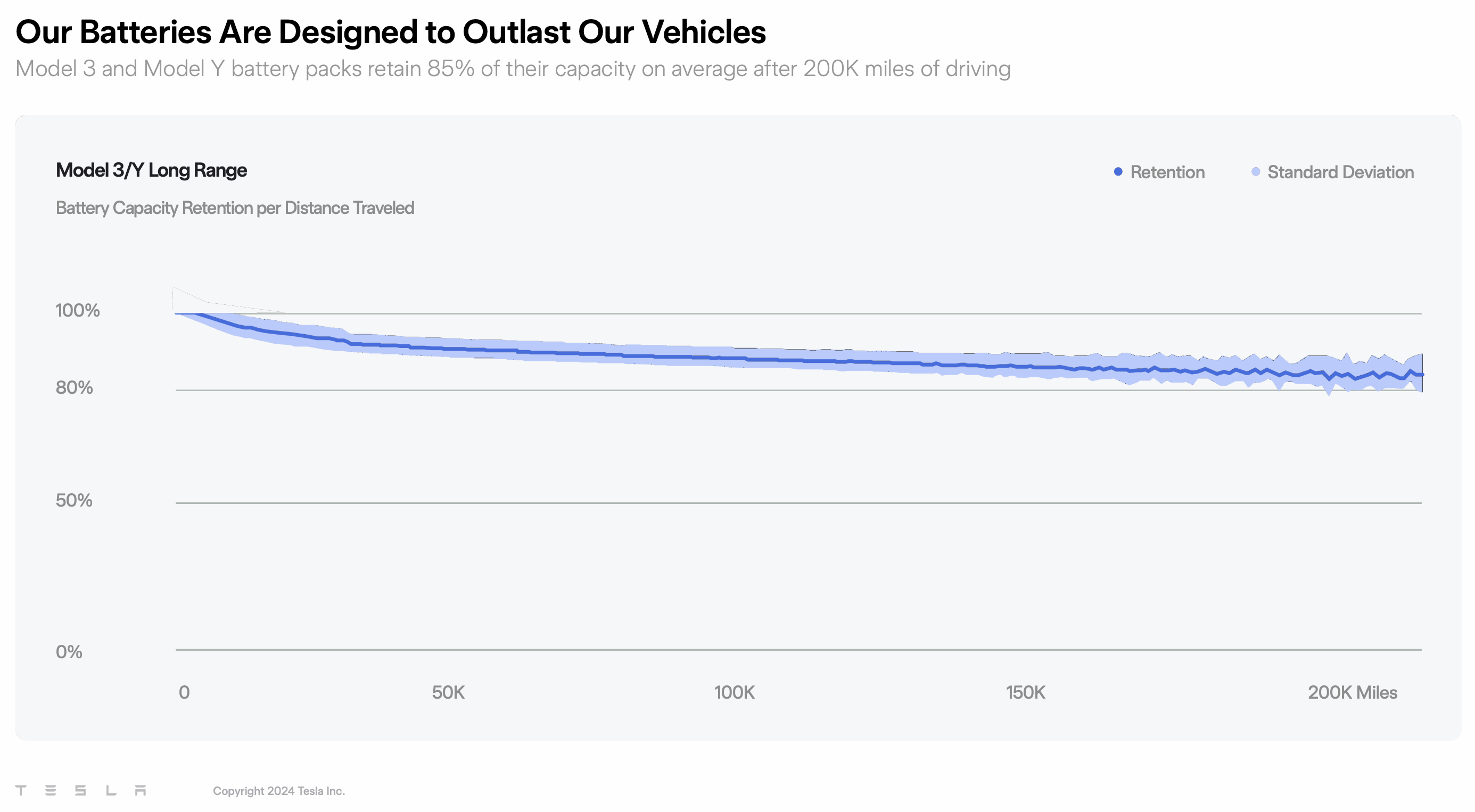Sign up for daily news updates from CleanTechnica on email. Or follow us on Google News!
The Intertubes lit up this week with reports that the EV startup Rivian has already received more than 100,000 pre-orders for its new R2 mid-sized SUV, but that’s not the only news the company is eager to share. Earlier this week Rivian also took pains to point out that renewable energy is front and center in its plans to create a holistic zero emission driving experience for its customers.
Wow, 100,000 Pre-Orders For The New Rivian R2 EV
If you’re wondering why more than 100,000 people would pre-order an electric vehicle when EV sales are supposedly dropping, that’s a good question. The answer is that sales are not dropping, at least not from a big-picture perspective. However, the numbers indicate that Tesla sales have been dropping in the US, even as sales overall continue to enjoy a rising tide. Regardless of the reason for the falloff, Tesla has left a huge gaping hole for other EV makers to fill up.
That includes Rivian. The company launched in 2009, right around the time Tesla introduced the Roadster EV. It has been playing catchup ever since. Ford likes to claim that it is #2 in US electric vehicle sales behind only Tesla, but Rivian is jockeying to contend as well. (see more Rivian background here).
Local radio station WGLT (a public service of Illinois State University) got the scoop on the 100,000+ pre-order story earlier this week.
“The R2 is being sold as, among other things, a more affordable option compared with Rivian’s existing lineup,” observed WGLT reporter Colin Hardman on July 21. He cited Rivian VP of manufacturing Tim Fallon, who said that the company is “well over a 100,000 pre-orders for R2, and those continue to climb — and they really climb organically.”
“As we really push R1 and R1 gen 2 and continue to get our current product out there, the R2 continues to increase in pre-orders,” Fallon added.
More Renewable Energy With Your R2 Pre-Order
The 100,000 pre-order mark is pretty impressive, though Rivian has a long way to go before it can match the 2 million+ pre-orders reportedly received by Tesla for the Cybertruck.
More to the point, Rivian followed up the WGLT story with a more emphatic thumbs-up for renewable energy in a press release on July 22, leading off with the observation that “the full benefits of EVs will only be realized if we reduce the carbon emissions from the energy needed to power them.”
“That’s why we’re investing in building a carbon-free grid — and it means you support wind, solar, and other clean energy projects every time you charge your Rivian. The more you drive, the more you help accelerate the shift to renewable energy,” Rivian explains.
Renewable Energy, ESG, & The Three Cs
That’s a good point. Though EVs have a much smaller carbon footprint than gasmobiles, it’s a bit disheartening to spend a lot of cold, hard cash on a battery-powered vehicle that recharges with the help of coal or natural gas power plants.
Rivian’s investment strategy did not just pop up out of the blue. Corporate renewable energy buyers began flexing their power to move markets during the Obama administration. Rivian is building on that effort, but with a more intentional focus on benefits beyond decarbonization. The company teamed up with The Nature Conservancy last year to develop a soup-to-nuts approach to renewable energy investing that is consistent with the ESG (environment, social, governance) investing principles widely used by financial firms (see more ESG background here).
The mashup between The Nature Conservancy (TNC) and Rivian also reflects a strategic response to opponents of rural solar projects. Developers are beginning to realize that the case for renewable energy needs to expand beyond clean kilowatts, to engage actual people.
“Our approach ensures clean energy development drives local economic growth, protects ecosystems, and increases energy access and affordability, while maintaining financial viability,” Rivian explains, referring to the “3C toolkit” developed in collaboration with The Nature Conservancy.
The 3C goals — climate, conservation, and community — are outlined in a white paper produced by Rivian and TNC, which makes the case for renewable energy projects that are not scattered willy-nilly all over the landscape.
“Corporate procurement policies can influence the clean energy market to move beyond traditional considerations and prioritize important co-benefits extending beyond the achievement of corporate sustainability goals,” the authors explain, in what sounds like a ringing endorsement for ESG investing without incurring the wrath of anti-ESG politicians.
More Renewable Energy For More Rivian Drivers
If you’ve been hearing about the Starfire Solar project in Kentucky, that’s one result of the renewable energy collaboration with TNC. The two partners teamed up to engage in a power purchase agreement with the massive 800-megawatt solar array, providing the developer BrightNight with the financial security to move forward with construction.
“To ice the green cake, the Starfire solar array will sit on the site of the Starfire Coal Mine, which covers parts of Perry, Knott, and Breathitt counties,” CleanTechnica observed earlier this year. Another 1,000 megawatts are coming if and when Brightnight builds a new 20-mile transmission line.
Though most of Rivian’s renewable energy projects are solar, the company does have a couple of interesting hydropower projects in the cooker. One of them involves the Atlanta firm Emrgy, which has come up with a compact alternative to traditional hydropower. Instead of relying on the water pressure created by massive dams, Emrgy leverages on the ambient flow of water, deploying canals and other water systems.
Renewable Energy & Community Benefits
Perhaps the most impactful investment Rivian has made to date is an agreement with the firm Pivot Energy, which specializes in community solar projects. Community solar refers to PV arrays that local ratepayers can subscribe to, providing direct access to renewable energy regardless of whether or not they can install solar panels on their own property.
Earlier this year, Pivot announced announced a 60-megawatt collaboration with Rivian, under which Rivian will purchase RECs (renewable energy certificates) from 50 megawatts’ worth of solar, in addition to subscribing to 10 megawatts of community solar. This particular agreement falls into the category of “impact RECs,” meaning REC agreements that involve community benefits over and above simply producing more zero emission electricity.
“Impact REC agreements such as this one are designed to channel clean energy resources into regions poised for new solar development and contribute to local community initiatives,” Pivot explained in a press release dated May 22.
“Rivian’s partnership enables additional solar projects to be strategically developed in locations with few solar resources,” Pivot added, noting that the new projects will be located in a region with a particularly dirty grid.
“By supporting these new-build distributed solar projects through this REC purchase agreement and community solar subscription, Rivian will have an outsized impact on emissions reductions in this region,” Pivot emphasizes.
It’s a safe bet that other EV makers are paying attention. Rivian notes that the 3C toolkit is free for sharing, so keep an eye out for more community solar activity to come. Just remember it’s 3C, not ESG.
Follow me via LinkTree, or @tinamcasey on Threads, LinkedIn, and Instagram.
Image (cropped): Rivian customers on the pre-order list for the new R2 electric SUV can look forward to more renewable energy for their zero emission ride (courtesy of Pivot Energy via Rivian).
Have a tip for CleanTechnica? Want to advertise? Want to suggest a guest for our CleanTech Talk podcast? Contact us here.
Latest CleanTechnica.TV Videos
CleanTechnica uses affiliate links. See our policy here.
CleanTechnica’s Comment Policy





